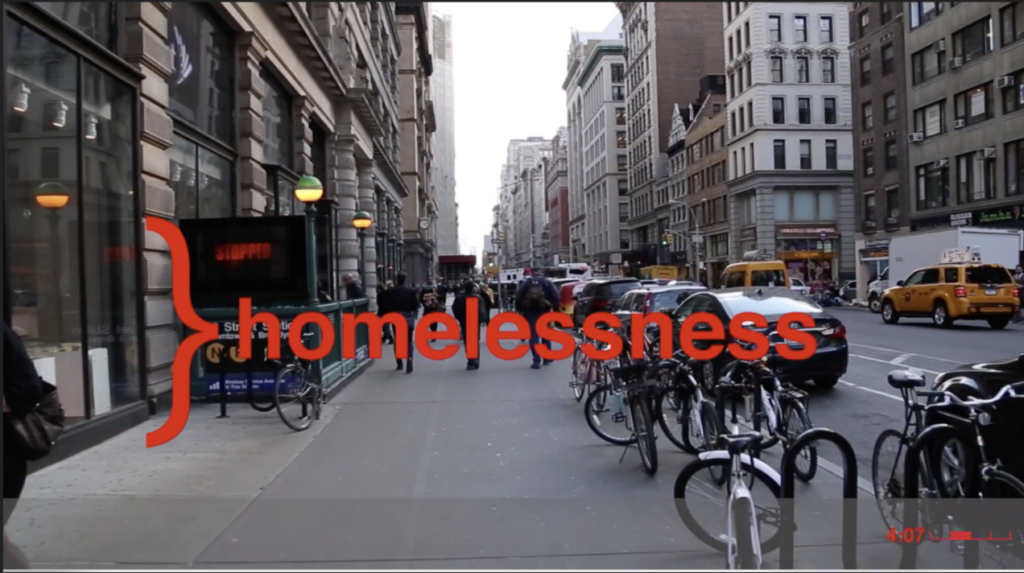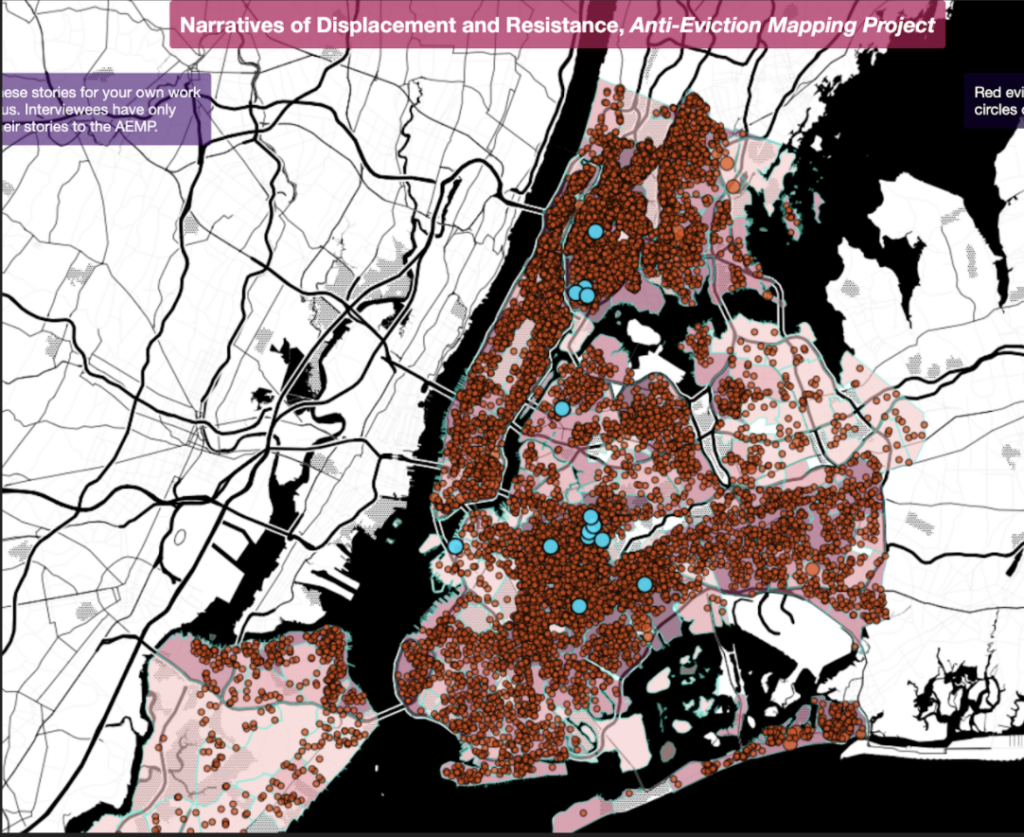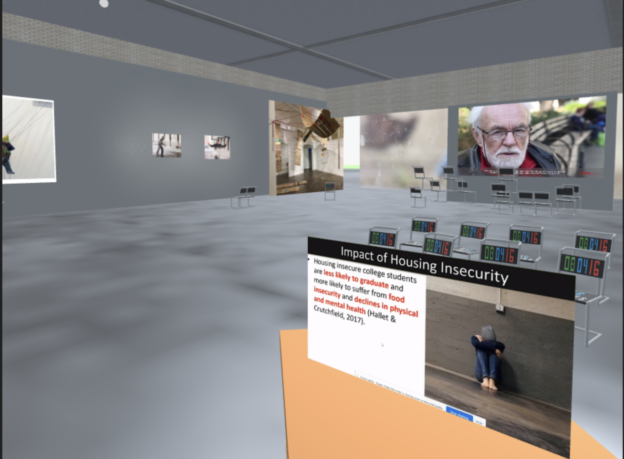This post was written by Contributing Authors Midori Yamamura and Tommy Mintz and edited by Jason Leggett.
“That was the best of all the webinars and whatever I’ve been clocking into!”
“This was a very powerful conversation on the topic of homelessness. The biggest takeaway for me is to hear this topic approached from grassroots and not top-down perspective.”
These reactions came from participants of UnHomeless NYC: an information session. This two-day workshop examined homelessness with artists, community activists, students, educators, and attendees in dialogue around activities leading up to a public exhibition in the fall of 2021 and spring of 2022 at Kingsborough Community College. Together, educators across disciplines along with students, activists and artists are transforming educational spaces to critically reflect about perceptions of homelessness as agency for social change. As one activist, Manon Vergerio, reflected after the event, the voices from the street can be a powerful pedagogical tool that triggers us to see things differently, not just scholars writing for other scholars.

In 2019, four faculty from separate disciplines discussed how we could integrate teaching and research into a shared humanities project. We were wondering how we might respond to a survey (2018) that indicated that more than 50% of our students were housing insecure. We decided a humanities focused project that would have the most transformative potential for all involved. While many believe that housing is a basic human right, housing policy in New York City is a highly segregated and political process. We applied and were granted a small amount of funding to continue planning. We invited Rob Robinson, a formerly homeless-now-activist, and Maureen Connor, a professor emerita and artist, to join the conversation and from their individual feedback we began the vision for UnHomeless NYC. We set out to organize and plan a cross-disciplinary participatory exhibition with the ambitious inquiry: can the arts change conceptual understandings of the homelessness problem? Through many conversations, student work, and our own independent research we have coalesced into a team that is presently working on many: from displacement to alternative economies and to conceptualizing how to bridge the gap between art as object and art as activism. Tanzina Ahmed, a sociologist, is exploring the relationship between food insecurity and housing insecurity during the COVID19 Pandemic.

On the second day, we were able to make connections between past and present. Manon Vergerio had been a student when she met Rob Robinson. Rob entered into advocacy after working with Neil Smith on connections between gentrification and homelessness as a racial construct. Manon’s mentor at the New School was inspired to bring students to Sunset Park to examine housing inequality in action. As art faculty, we invited two students to share their experiences as we re-designed the course with homelessness as a central theme for inquiry. Sheindy Weichman and Peter Ayala articulated how expressing voice in grass-roots struggle is a powerful tool for both community based organizations and for academic problem solving. Together, we conceptualized a learning experience whereby faculty, students, and community partners examine the harm caused by global capitalism, gentrification and displacement, and challenged the drowning out of local voices by elitist and pluralistic politics.
Midori Yamamura, Ph.D., Assistant Professor of Art History at the CUNY Kingsborough, specializes in global contemporary art history focusing on Asia and its diaspora. The author of Yayoi Kusama: Inventing the Singular (MIT Press: 2015) and co-editor of Visual Representation and the Cold War: Art and Postcolonial Struggles in East and Southeast Asia (Routledge, 2021), she is currently completing a book on Japanese Contemporary Art. She has been exploring community-based community college teaching, co-curating a pedagogical exhibition, UnHomeless NYC (2022), which connects classroom research, art, and the local community.


